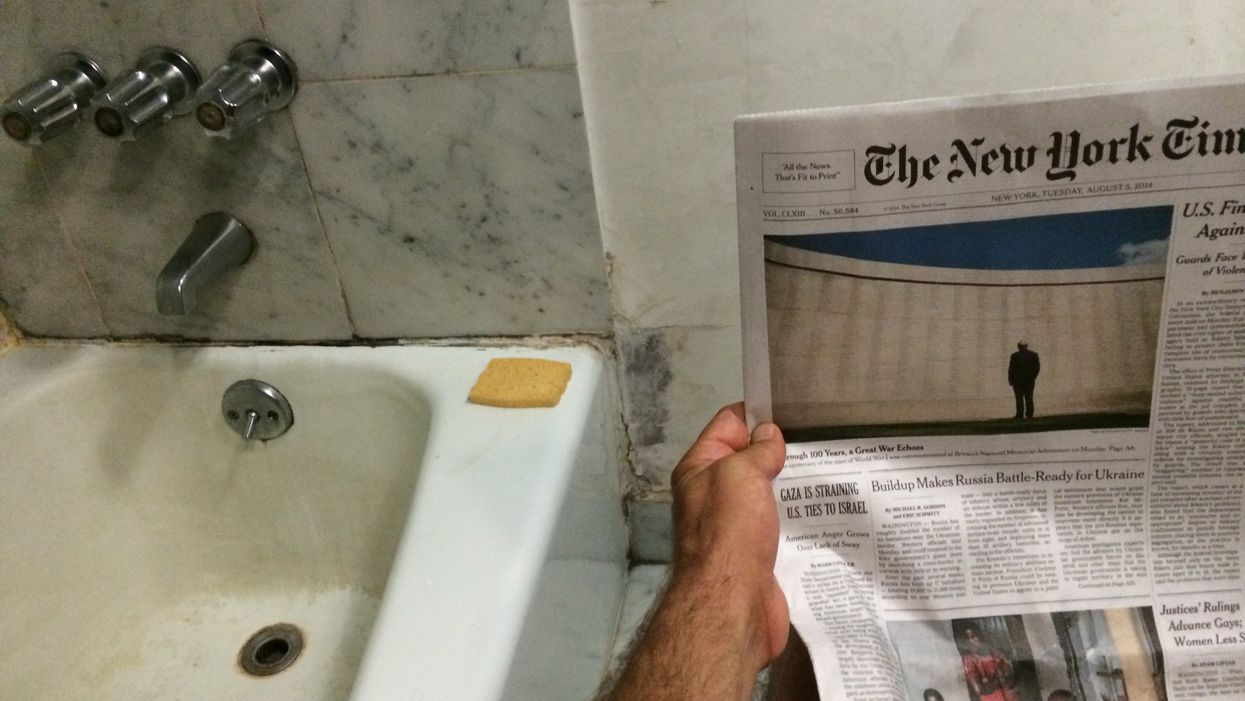
Getty Images

'We have found a gas well in the middle of Brooklyn'
The city of New York has given the term "going green" a whole new meaning. The stuff New Yorkers flush down their toilets will soon help fuel their stoves and heat their homes.
Not kidding.
The Bureau of Wastewater Treatment at New York City's Department of Environmental Protection plans to take residents' poop, turn it into methane gas, then use it to fuel as many as 5,000 homes in the Big Apple, the New York Post reported.
"It's clean, it's green, and it's local," Pam Elardo, deputy commissioner for the Bureau of Wastewater Treatment, told the newspaper.
Officials claim that the gas produced by Brooklyn's Newtown Creek Wastewater Treatment Plant will help the city reduce carbon emissions as part of the city's effort to combat climate change.
"We have found a gas well in the middle of Brooklyn," Donald Chahbazpour told the Post. "But the feedstock is not fossil fuel — it's us."
Chahbazpour is the director of Gas Utility of the Future at the National Grid power company.
The DEP and National Grid partnered on the poop-to-gas project that should be running by year's end, according to the paper.
Officials believe the emissions' reduction would be equivalent to those produced by about 19,000 cars each year.
Vapors produced at the Newtown Creek plant are already helping to fuel the plant, but it's producing too much. The plant burns the excess, which means it is pumping greenhouse gas emissions into the air.
The National Grid plans to collect the extra vapors from the plant, remove the moisture and carbon dioxide, and then turn it into high-quality methane gas to fuel homes.
"We're basically building a fancy filter," Chahbazpour said. "It's indistinguishable from a molecular perspective. The only difference is the feedstock is us."
The Department of Environmental Protection has piloted another program that collects about 130 tons of food waste from hotels and restaurants that it will also use for the project.
"We're taking a locally sourced natural carbon and making a gas product that is environmentally sustainable," Elardo told the newspaper.
Officials hope the methane gas project will eventually expand to the city's other wastewater plants.